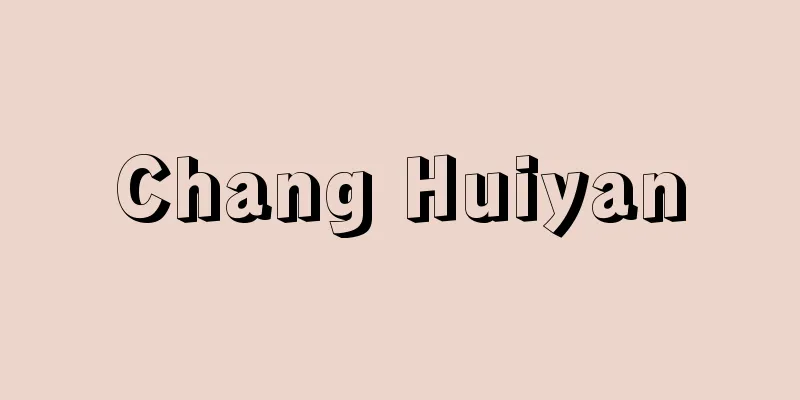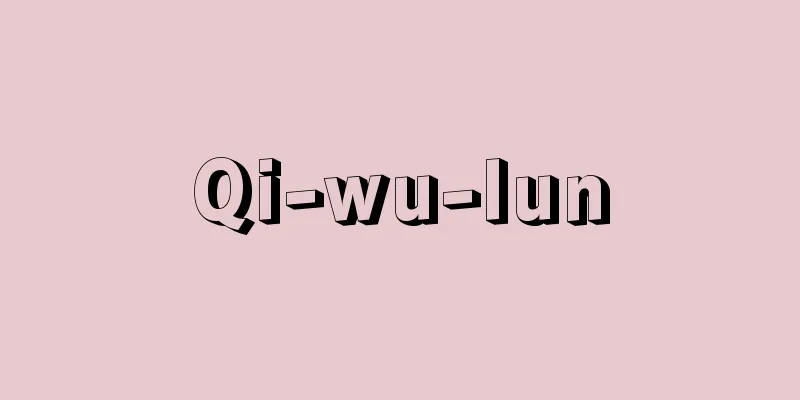Chang Huiyan

|
A scholar and man of letters from the Qing Dynasty in China. Born in Wujin, Changzhou Prefecture, Jiangsu Province. His courtesy name was Gaowen and his pen name was Mingke. He was a Jinshi in 1799 (4th year of the Jiaqing era). In 1801, he was appointed editor of the Hanlin Academy, but died of illness the following year in 1802. As a scholar of classics, he was known as an expert on the I Ching and rituals, and wrote works such as the 9 volumes of "Zhouyi Yushi Yi" and the 6 volumes of "Giraizu". In the poetry world, he advocated the theory of "intention and non-statement" that emphasized "reliance" (corresponding to the concept of comparison in poetry) in contrast to the emphasis on technique that had been mainstream in the Zhejiang School until then, and he presented his views in the 2 volumes of "Siege of Songs," and is considered the founder of the Changzhou school. In his middle age, he came to know Liu Dali and studied the classical Chinese of the Tongcheng school, while also advocating a concise style of writing that also incorporated the use of 'Benbun' (traditional Chinese writing). Together with his fellow townsman Yunjing, he founded a branch of the classical Chinese of the Yanghu school. His works include "Mingke Wenbian" and "Mingke Ci". [Toramaru Ito March 18, 2016] "History of Qing Dynasty Literary Criticism" by Masaji Aoki (1950, Iwanami Shoten) [Reference item] | | |Source: Shogakukan Encyclopedia Nipponica About Encyclopedia Nipponica Information | Legend |
|
中国、清(しん)代の学者、文人。江蘇(こうそ)省常州府武進の人。字(あざな)は皋文(こうぶん)。号は茗柯(めいか)。1799年(嘉慶4)の進士。1801年翰林院(かんりんいん)編修を授けられるが翌1802年病没。経学者としては易や礼の専門家として知られ、『周易虞氏義(しゅうえきぐしぎ)』9巻、『儀礼図(ぎらいず)』6巻などの著書がある。詞壇ではそれまで主流だった浙西(せっせい)派の技巧偏重に対して「寄托(きたく)」(詩における比興(ひきょう)にあたる)を重んずる「意内言外」の説をたて、『詞選』2巻にその主張を示し、常州派の開祖とされる。文章では中年以後、劉大櫆(りゅうたいかい)を知り桐城(とうじょう)派古文を学びつつ駢文(べんぶん)をも取り入れた簡潔な文体を提唱、同郷の惲敬(うんけい)とともに陽湖派古文の一派を開いた。『茗柯文編』『茗柯詞』がある。 [伊藤虎丸 2016年3月18日] 『青木正児著『清代文学評論史』(1950・岩波書店)』 [参照項目] | | |出典 小学館 日本大百科全書(ニッポニカ)日本大百科全書(ニッポニカ)について 情報 | 凡例 |
Recommend
Princess Otohime
Originally, the term Otohime meant the younger pri...
Magome
This area is located in the eastern part of Nakat...
List of Jinpu - Jinpu List
This list of donors was published to reward those ...
Unacha - Unacha
…Nanairo Chazuke, which is served with seven kind...
Thirteen generations of poets - Juusandaishuu
This refers to the imperial anthologies of waka po...
Hakamagi - Hakamagi
Also called chakko. This is a ceremony in which a ...
Family tree - Kafu
A genealogy for each family. Also called a family...
Junior Manager - Junior Manager
… The expansion of the organizational scale also ...
Hoa Binh Culture
A culture believed to date to the early Holocene ...
Sugano Joyu
Name of the head of the Sugano school of Icchu-bus...
Kagoshima Castle Town
...Hot springs were discovered in the city in the...
Sociology of science
A specialized field that regards science as a soci...
Hachi (bee) - bee
A general term for insects in the Hymenoptera orde...
PL Kyodan - PL Kyodan
A new religion that was established after World Wa...
Isoflurane - Isoflurane
...Hyperventilation under deep anesthesia has the...









